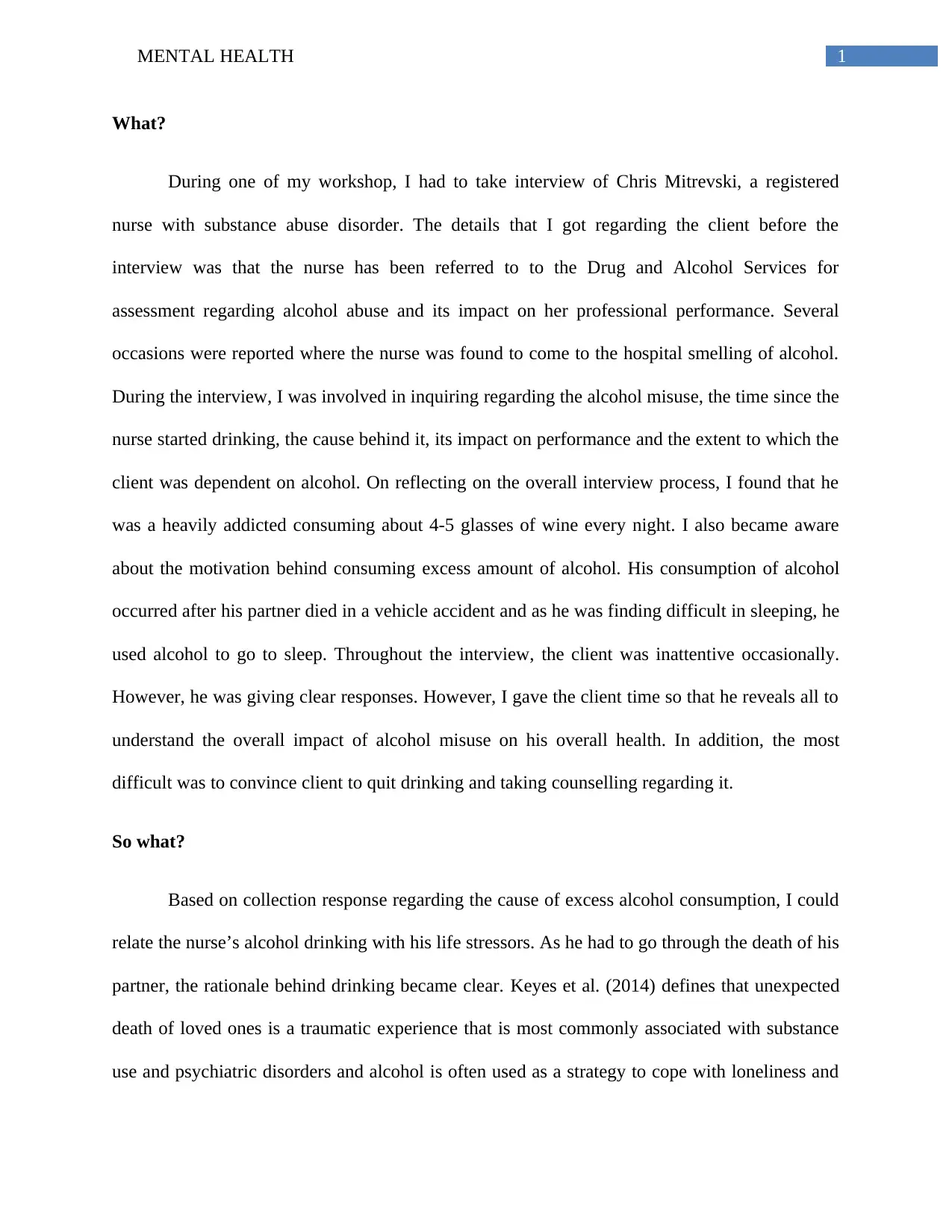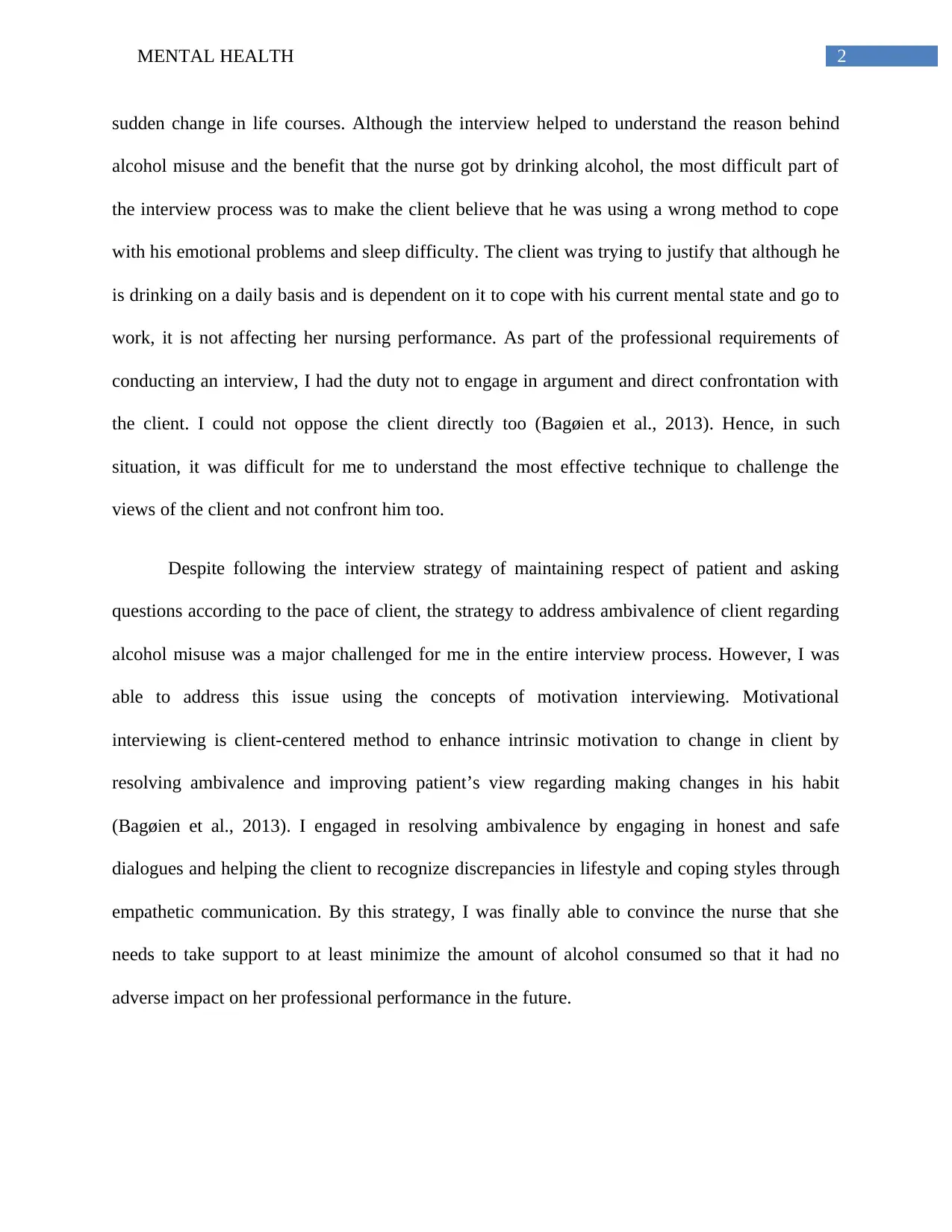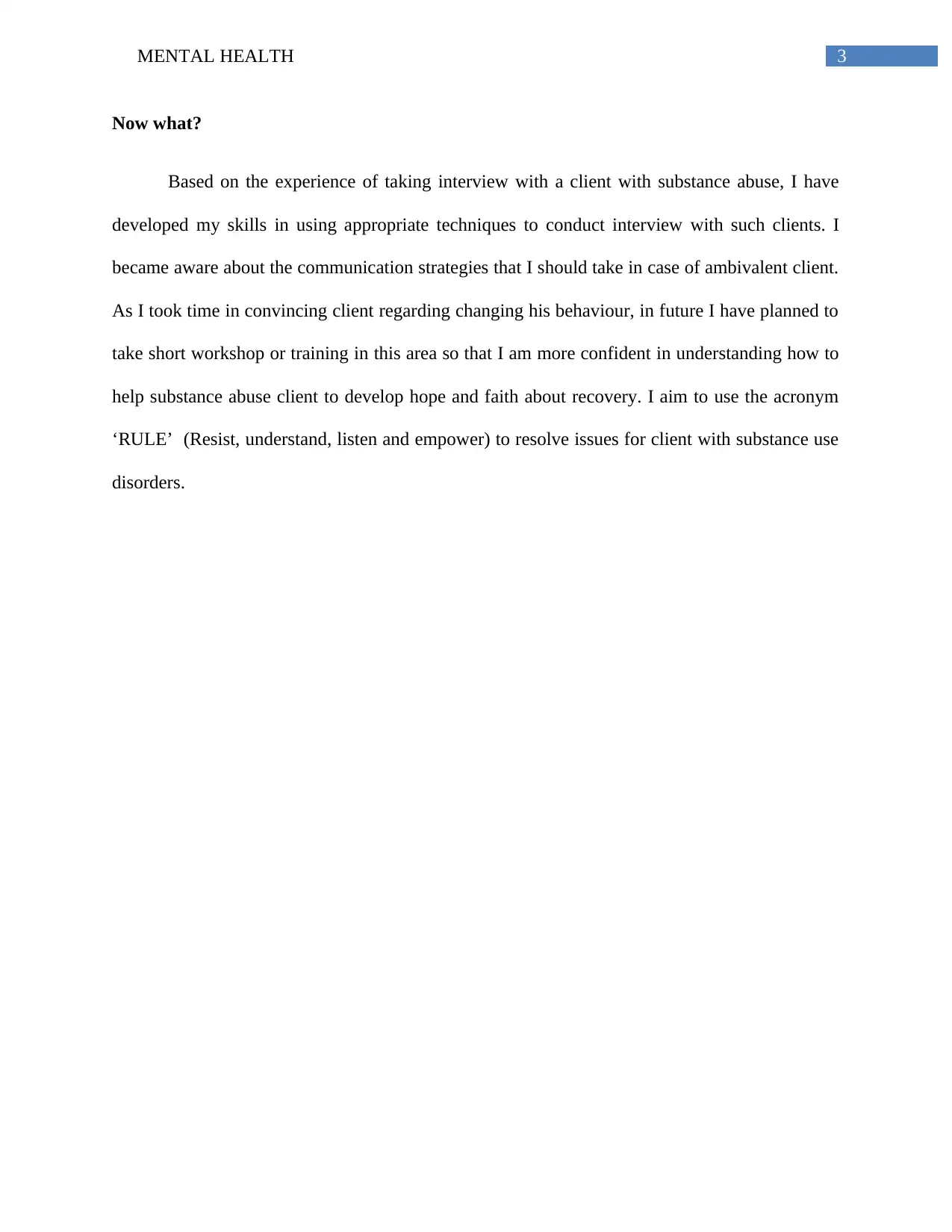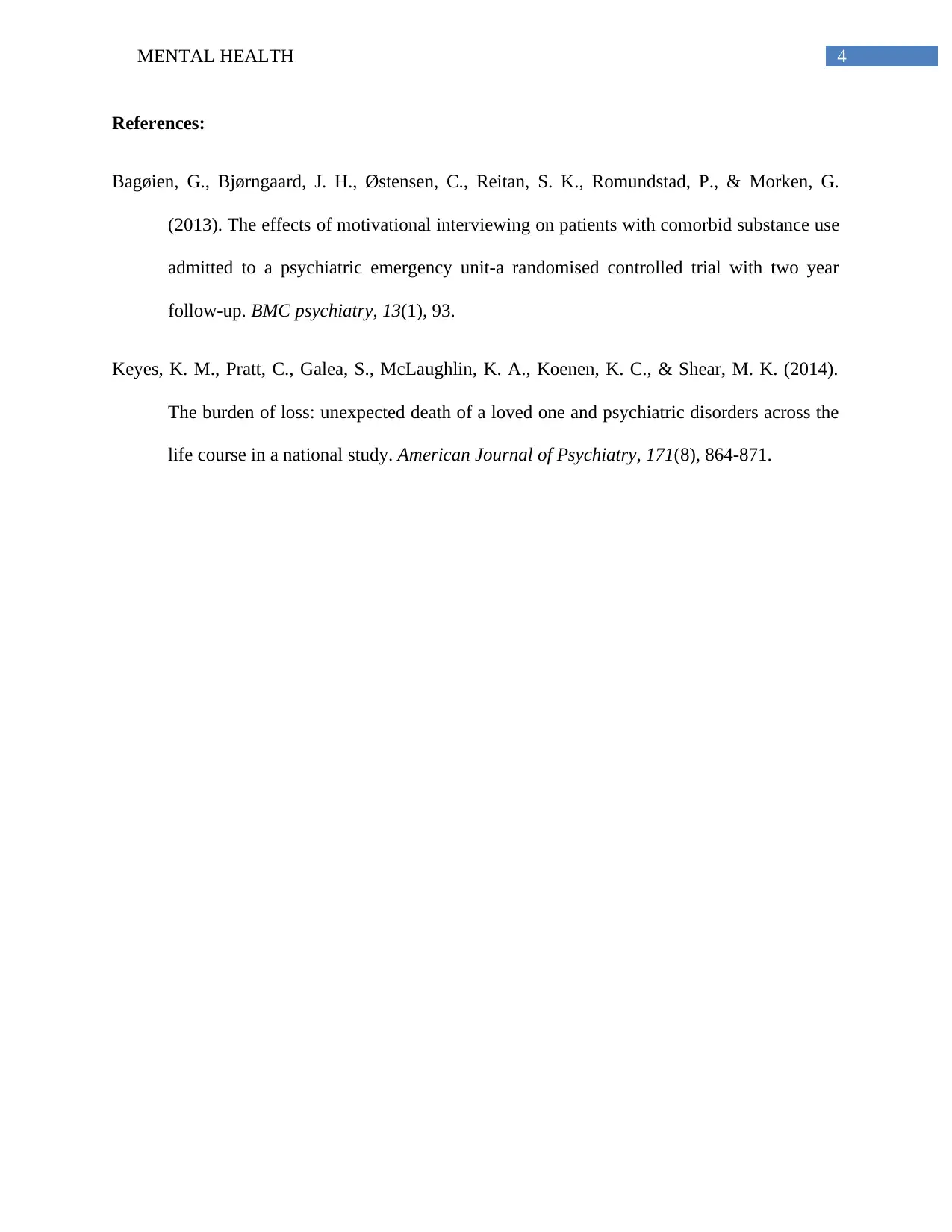Mental Health Interview Reflection Report - Substance Abuse
VerifiedAdded on 2022/09/15
|5
|965
|15
Report
AI Summary
This report presents a reflection on an interview conducted with a registered nurse experiencing substance abuse disorder. The interview focused on the nurse's alcohol misuse, its causes, and its impact on professional performance. The student reflects on the challenges of addressing the client's ambivalence towards quitting alcohol, particularly in justifying their drinking. The report discusses the application of motivational interviewing techniques to resolve this ambivalence, emphasizing empathetic communication and the identification of discrepancies between the client's lifestyle and coping mechanisms. The student also highlights the importance of understanding the client's stressors, such as the loss of a partner, and the use of alcohol as a coping mechanism. The reflection concludes with the student's insights into improving communication strategies for future interviews with substance abuse clients and their plan to utilize the 'RULE' acronym to resolve issues for client with substance use disorders.
1 out of 5












![[object Object]](/_next/static/media/star-bottom.7253800d.svg)